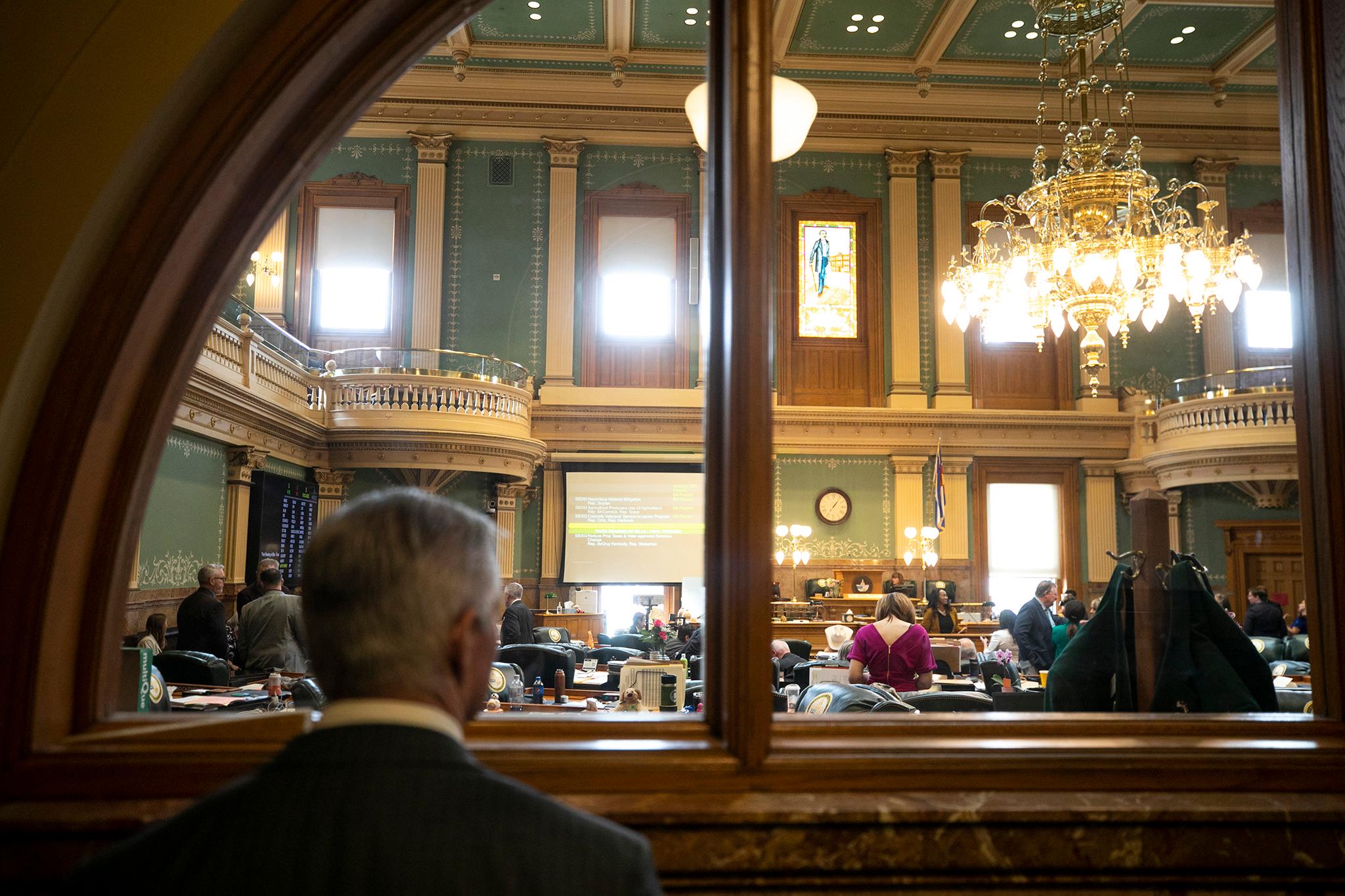
A complex proposal to change Colorado’s tax rules will go before voters this November.
The measure, known as Prop. HH, was approved by Democratic lawmakers in a contentious and fast-moving process that saw two bills with potentially billions of dollars of fiscal implications introduced and passed in a matter of days.
The legislature has asked voters to essentially approve a four-part plan:
Property tax rates would be lowered for a 10-year period, reducing tax bills by an estimated $1 billion per year in some initial years. That could mean hundreds of dollars in yearly savings for many homeowners, at least compared to doing nothing. But property bills will still go up as values rise.
The state would send billions to local districts and schools. Lower tax rates means less money for local governments and schools. The state would partially make up for that by sending up to an estimated $10 billion over the next decade to those districts. But county governments and others have warned it won’t fully make up for the reduction.
The state would pay out less in TABOR refunds. To cover the “backfill” payments to local districts, the state would use money that it would otherwise be required to refund to taxpayers. It would do this by raising the TABOR cap, which limits how much tax money the state can retain. The result would be that the state keeps up to $10 billion more, rather than refunding it, over the decade — although it could be less depending on the economy.
Some people would still get bigger TABOR refunds in the near term. To sweeten the deal for lower-income people who may not own property and would see little benefit otherwise from Prop. HH, the legislature has proposed temporary changes to the refund formula. Normally, people get bigger refunds if they have higher income and paid more taxes. But if Prop. HH passes, everyone would get an equal refund of an estimated $661 next year. The result would be that, even as the overall money sent back to taxpayers shrinks, poorer people could get bigger refunds — and richer people would lose out on hundreds of dollars. But the change would be temporary.
Republicans say the measure is a major attack on the Taxpayer Bill of Rights, cloaked in a property tax cut.
Senate Minority Leader Paul Lundeen described it as “a headlong rush into the destruction of the Taxpayer Bill of Rights, holding as leverage over the people of Colorado the fact that property taxes are running away and will be taxing them out of their homes.” He called for a special session to address the issue instead.
At least initially, the effect on refunds would be relatively small. But by the end of a decade, the higher cap could eat up an estimated $2.2 billion of TABOR surplus — and it could keep growing after that, assuming the property tax cuts are kept in place. For comparison, TABOR refunds for the next few years are expected to be around the $2 billion range.
Under Prop. HH, the vast majority of that extra money would go to keeping school budgets growing, and a smaller amount would go to local governments, special districts, fire districts and others.
“I think we've built a set of measures that really respond well to a variety of different economic conditions,” said state Sen. Chris Hansen, a Democratic sponsor.
Republicans expressed outrage over the fast-moving pair of bills that formed the package, complaining not just about their content, but about how rapidly Democrats moved from introduction to final passage.
In the Senate, Sen. Barbara Kirkmeyer attempted to filibuster past the midnight deadline, but Democrats voted to end debate. The House GOP caucus took the unprecedented step of leaving the chamber hours before the legislative session ended, staging a walkout rather than take part in the final vote.
State Rep. Elisabeth Epps, a Democrat, shared their criticism of the process.
"We’re supposed to be better,” she said of the Democratic supermajority during a caucus meeting. “When we have this many (members), it’s supposed to look better in policy and it’s supposed to look better in process.”
Municipal governments, including counties, have expressed concerns that little of the backfill money will actually reach them. They’ll only receive support from the state up to a certain point, and representatives said they were still racing to figure out the potential fiscal impact of Prop. HH if it passes.
“It's kind of unfortunate that we are in this spot, because we would've really appreciated being part of these conversations on the front end,” said Gini Pingenot of Colorado Counties Incorporated.
The measure may be on the ballot alongside another proposed tax cut this November from a conservative group that strictly caps property tax increases at three percent a year and allows the state to hold on to $100 million over the TABOR cap to support fire districts specifically. Rep. Chris Kennedy, a Democratic sponsor, said the legislature’s measure offers a more sustainable alternative.
“We had to find a balanced approach. We had to find responsible reductions in property taxes that do not destroy our local governments,” he said.
Democrats made a number of amendments in recent days, such as adding a rental assistance program of up to $20 million per year that will be funded by the tax measure, and made other changes to the backfill provisions, including to prioritize fire districts.









